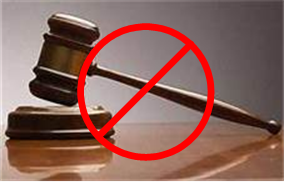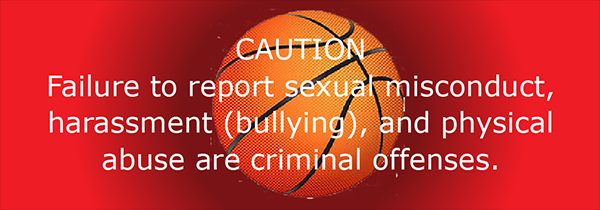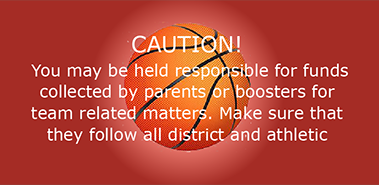- Offensive Techniques & Strategies
Personal Liabilities Inherited with Coaching

What you will discover or recall:
Comprehend the magnitude and scope of coaching liabilities and responsibilities.
Recognize the importance of having personal liability insurance.
Explore 12 ways to protect yourself against personal legal liabilities.
Understand the legal requirement and obligation in reporting Abuse, Harassment (Bullying), or Sexual Misconduct.

Coaching Liabilities & Responsibilities
As a coach, doing what you love to do is awesome and rewarding. However, it can really come back and haunt you if you do not adhere to your legal responsibilities. With the alarming increase in the number of sports lawsuits in recent years, coaches on all levels of the game, paid or volunteer, must be acutely aware of the legal ramifications and responsibilities that accompany coaching. These personal liabilities cannot be ignored or avoided. Criminal charges and civic lawsuits, no matter how frivolous and unjustified, are very serious matters that can be devastating and costly, even when they are won or dismissed.
Liability laws have been enacted to protect athletes and to provide for a safe and healthy environment. Legal liability is established through negligent or intentional acts that harm a third party either through omission (not performing an act that is expected to be performed by a prudent person) or by commission (performing an intentional act that results in harm).
Examples of coaches’ personal liability can include: Failure to Stay within Job Description, Faulty Equipment or Usage, Insufficient Supervision, Inadequate Instruction, Failure to Act Prudently During a Medical Emergency, Failure to Report Harassment (Bullying), Hazing or Sexual Misconduct, Failure to Supervise Volunteers, and Improper Transportation.

12 Ways to Protect Yourself Against Legal Liabilities
By addressing the following 12 coaching obligations and responsibilities, it will not only help protect you from lawsuits and legal challenges, but it will also insure your players of a wholesome participation and safe environment.
1. Have Personal Liability Insurance

Personal liability can and does result in civil lawsuits, criminal charges, exposed personal assets, loss of careers and reputation damage. Therefore, coaches must have appropriate insurance that covers both public liability and personal accidents. Do NOT go on the court without it. The risks are too great!
Check with your insurance agent and your school/organization to see if they provide personal liability coverage for coaching. If possible, join the coaches' or teachers’ association. These associations not only provide liability insurance, they also provide legal representation. Make sure that all volunteer coaches are aware of their need for liability insurance. You will also need personal liability insurance that covers basketball camps, off season (summer) coaching, open gyms and any personal training since schools require proof of liability insurance for non-school facility usage.
2. Stay within the Job Description following school/district policies and Federal laws.
As a coach, you are acting as an agent of your employer, as long as you stay within the course and scope of your designated and assigned duties. Acting outside of a job description will expose you to personal liability. Do not assume duties, make sure that you have a written contract and/or job description. Also, make sure that your entire coaching staff, paid and volunteer, are aware of their duties and personal liabilities.
3. Warn Participants of Risks
Players must be warned of the risks in playing basketball. Provide a written document warning parents and players of the inherent risks unique to basketball. Obtain a signed acknowledgment of the risk warning document from parent and athlete prior to participation. Be sure to alert and warn players of any changes in equipment, rules, techniques or strategy. Keep a written record of time, place, subject and method of these changes.
4. Require Proof of Physical Exams, Medical Insurance and Treatment Consent
Require proof of physical exams prior to participation. Court decisions have held that coaches have the duty to be aware of all players’ physical fitness, medical conditions, and skill level. Also, require evidence of medical insurance.
Health care providers cannot lawfully render treatment to a patient without consent. When a minor is involved, consent must be obtained from a parent or legal guardian. Having a "consent form" on file not only expedites medical care, but also provides some protection against a parent’s claim that emergency care was not authorized. Consent forms should list any allergies to medications along with specifying who to notify in the event of a medical emergency.
 Printable Emergency Phone Numbers form
Printable Emergency Phone Numbers form5. Provide Proper Supervision

Provide proper supervision of players at all times. This includes waiting time prior to practice. As a coach you must also reasonably foresee potential dangers along with watching out for and prohibiting players to practice or play with injuries. Be particularly alert and cautious of players exhibiting any concussion symptoms.
 Concussions - A must read for all coaches!
Concussions - A must read for all coaches!6. Provide Safe Equipment & Facilities
Prior to any practice, game or open gym, make sure the facility is safe. Adhere to the first aid adage, "Ounce of prevention is worth a pound of cure." Learn to be cognizant of potential dangers and hazards around the court area at all times. Double check to see that all standards are stowed out of the way, balls remained picked up, water is not on the floor, etc.
Make routine equipment inspections. List and post rules & warnings for equipment usage especially in weight rooms. Have all equipment installed and repaired by qualified personnel only. Make sure that a first aid kit and supplies including ice or cold packs are available for practices as well as games.
7. Provide Proper Instruction
Coaches must follow the accepted practices for teaching specific basketball skills and techniques. Certain drills and other methods that are standard for basketball instruction should be followed. It is especially important that coaches focus on the more hazardous areas of basketball training, such as proper techniques for taking a charge or diving for a loose balls. Coaches must also keep a record of daily practice plans documenting all training activities by time, place, subject and method.
Coaches should constantly update their coaching knowledge and expertise by attending classes, seminars, clinics and through online resources such as HoopTactics. If coaching certification is required, keep it up to date.
8. Follow prudent and approved protocols during an emergency

Coaches are legally responsible for the safety of their players. Unfortunately basketball injuries do occur. Each year, more than 1.6 million basketball-related injuries are treated in hospitals, doctors’ offices, clinics, ambulatory surgery centers and hospital emergency rooms. Therefore, all coaches must be certified in basic first aid and in CPR. Prior to every practice or game, make sure that you have access to first aid facilities and a means by which to contact emergency services. A first aid kit and supplies including ice or cold packs should also be available at all times.
 Learn More: Common Basketball Injuries
Learn More: Common Basketball InjuriesOrganize and have in place an Emergency Medical Plan tailored to the availability of school and local community resources. All coaches and players must be specifically trained how to activate and execute the Emergency Medical Plan. Also, develop an alternative Emergency Medical Plan to be executed when traveling to another facility.
Once an athlete has suffered an injury, clearance to return to play must be provided by a doctor in writing. Do not play hurt or injured players.
9. Report Suspected Abuse Immediately
It is the coach's responsibility, and required by law, to protect players against all forms of abuse. Coaches must be able to recognize indicators that may signify abuse and take appropriate action if concerned.
- Neglect (inadequate food)
- Emotional abuse (threats, taunts)
- Sexual abuse (misconduct, pornography)
- Physical abuse (trauma or bruising)

In addition, coaches have an ethical and legal responsibility to educate their athletes about drug & supplement use and abuse along with providing general nutritional advice. Give players advice and guidance only when appropriate, and never offer any advice beyond your level of qualification and training. Player Confidentiality: Never discuss a player with anyone except parents or school administrators or authorized legal authorities.
10. Follow Transportation Rules
Buses are the safest mode of transportation. If school vans are used make sure that they are not overloaded (maximum capacity of ten) and that drivers are properly licensed and insured. Require players to always return with the team. Never allow a player to return with anyone except a parent. Require a written release with the parent’s signature, if a player is released to their parents rather than traveling back with the team.
If transportation is not provided, let parents know in writing that they will be responsible for transportation. It is highly recommended that coaches do not use their personal vehicles for transporting players to away venues. If you do use your own vehicle, make sure that you are properly insured. Never transport students alone in your car!
11. Maintain Strict Accountability When Handling Fees and Money

Be extremely cautious when collecting fees and monies. Whenever possible, ask for payments to be made with checks, money orders or credit cards. For any cash payments issue receipts and keep possession of your receipt book for 5 years. Always have a witness when counting cash. Do not store cash. Deposit it immediately using the proper channels and obtain a receipt. Do not ever open a personal basketball bank account or deal in petty cash unless you are running your own basketball camp, tournament or personal training and have a business license.
CAUTION: You may be held responsible for funds collected by parents or boosters for team related matters. Make sure that they follow all district and athletic department accounting and reporting policies.
Only purchase team items that have prior administration approval and signed requisition. Use school/team funds, credit cards or purchase orders for team expenditures only. Never use them for personal items. If you receive advance funds, be sure to save and turn in all receipts for record keeping.
12. Keep Written Records
Keeping written records is a must. Being right is not enough. Coaches and their designees have to prove it. Be sure to keep a file of the following records:
Proof of certification and First Aid/CPR training.
Player Physical Exams
Signed Warning of Risks Document
Eligibility Information
Written Practice Plans
Written Emergency Action Plan
Copies of all Injury and Accident Forms
Parent/Guardian Consent forms
Written doctor’s return to play clearances
Alternate transportation permission slips
All Financial Collections & Transactions.It is highly recommended that you keep files for at least five to seven years since many lawsuits do not occur until years after the fact.

In Review
1. Liability laws have been enacted to protect athletes and to provide for a safe and healthy environment.
2. Coaches’ personal liability can include:
Failure to Stay within Job Description
Faulty Equipment or Usage
Insufficient Supervision, Inadequate Instruction
Failure to Act Prudently During a Medical Emergency
Failure to Report Harassment (Bullying)
Hazing or Sexual Misconduct
Failure to Supervise Volunteers
Improper Transportation.3. Do NOT go onto the court without personal liability insurance.
4. Keep your First Aid & CPR certification current and follow approved protocols in case of emergencies.
5. Make sure that you have access to the first aid facility, supplies and means to contact Emergency services at all times.
6. Require proof of medical exams, medical insurance, and treatment consent (if minor).
7. Stay within your job description and provide proper, accepted instruction.
8. Be alert to potential dangers and hazards around the court at all times
9. Report any suspected neglect, emotional, sexual or physical abuse immediately.
10. Keep written records on file for at least five years.
To return to Coaching Prerequisites - Click Here
To return to Coaching Strategies - Click Here
Return to HoopTactics' menu - Click Here
© 2026 HoopTactics All Rights Reserved.
